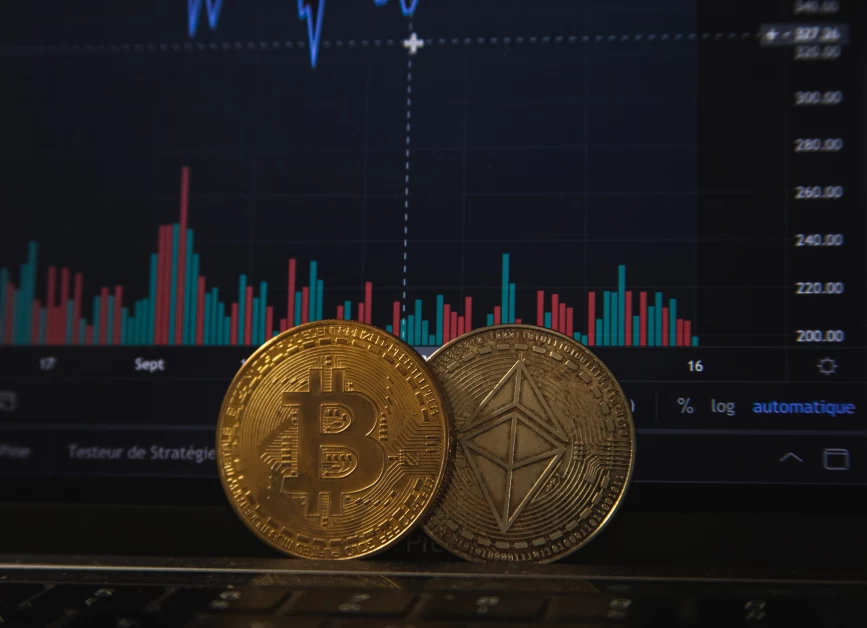Table of Contents
Introduction
The call for collaboration and innovation in addressing environmental challenges is resonating across industries and professions. Industry leaders are stepping up to devise strategies and solutions for a sustainable future. The IT sector, including blockchain technology, is actively participating in the sustainability movement. Blockchain is not only transforming industries but also playing a pivotal role in driving positive environmental change. In this article, we will delve deeper into how blockchain is shaping a green business ecosystem and introducing pioneering innovations.
Transition to More Sustainable Consensus Mechanisms
The blockchain industry is actively adopting more energy-efficient consensus mechanisms, such as proof of stake (PoS). For example, Ethereum’s “The Merge” update resulted in a remarkable 99.988% reduction in its annual power consumption by shifting from proof of work (PoW) to PoS. Newer blockchains are also pioneering innovative algorithms like proof of ethic and proof of authority to further reduce their environmental footprint.
Blockchain in Carbon Credit Tokenization
Blockchain’s entrance into the carbon credits industry is a significant advancement in bolstering transparency and accountability among environmentally conscientious organizations. By tokenizing credits, businesses can have a transparent and verifiable pathway to counterbalance their carbon footprints. Every activity, from issuance to trade and retirement, is logged on the blockchain, creating a robust and tamper-resistant system. This ensures authentic contributions to emission reductions and reduces the potential for duplication or misrepresentation. The UN/CEFACT 40th Forum recognized this groundbreaking approach, highlighting the growing trust and reliance on blockchain technology for environmental sustainability.
Blockchain in Sustainable Supply Chains
Blockchain is redefining eco-friendly standards in supply chain management by establishing transparent traceability from raw material procurement to product delivery. The global blockchain technology market in supply chain management is projected to reach $3.15 billion, reflecting a growing trust in blockchain’s potential to drive sustainability and revolutionize the supply chain sector. Blockchain plays a crucial role in ensuring the authenticity of ethically sourced products, enabling eco-conscious consumers to make well-informed choices and businesses to champion sustainability objectives.
Blockchain-Driven Recycling and Circular Economy Innovation
Blockchain’s impact on sustainability extends to enhancing recycling practices and promoting a circular economy. Blockchain-powered solutions, such as recycle-to-earn programs, bring together waste producers and recyclers, providing rewards for recycling efforts. Specialized non-fungible tokens (NFTs) serve as proof of recycling, offering unprecedented visibility into the entire recycling process. These initiatives highlight the transformative power of blockchain in recycling, advocate for sustainable practices, and usher in a new era of environmental accountability.
Tips for Incorporating Blockchain Technology into Sustainability Efforts
Integrating blockchain into sustainability initiatives requires strategic collaboration, alignment of vision with action, agility, leveraging collective wisdom, and a commitment to continuous learning.
- Collaborate strategically: Partner with experts in sustainable technology integration, environmental impact assessment, blockchain development, or green financing to enhance capabilities and gain a broader perspective on sustainability.
- Align vision with action: Ensure that every move aligns with the overarching sustainability vision, from optimizing processes to refining strategies, to contribute to significant and impactful sustainability outcomes.
- Stay agile and open-minded: Embrace the unknown and encourage agility to navigate the intricate dance of technology and sustainability, leading to innovative solutions.
- Leverage collective wisdom: Pool expertise from various sources, both within and outside the organization, to yield diverse insights and catalyze the development of robust blockchain solutions that advance sustainability goals.
- Commit to continuous learning: Invest time in continuous learning through seminars, conferences, workshops, or courses to keep the team adept and prepared to harness the latest developments in both blockchain and sustainability.
Conclusion
Blockchain technology is not only a marvel of technology but also a fundamental pillar of global sustainability. Its influence extends beyond industries, fostering transparent and sustainable supply chains, incentivized recycling programs, and promoting a circular economy. As we unlock the full potential of blockchain technology, we can expect even more exciting capabilities and solutions that promise a greener and more transparent future for generations to come.




